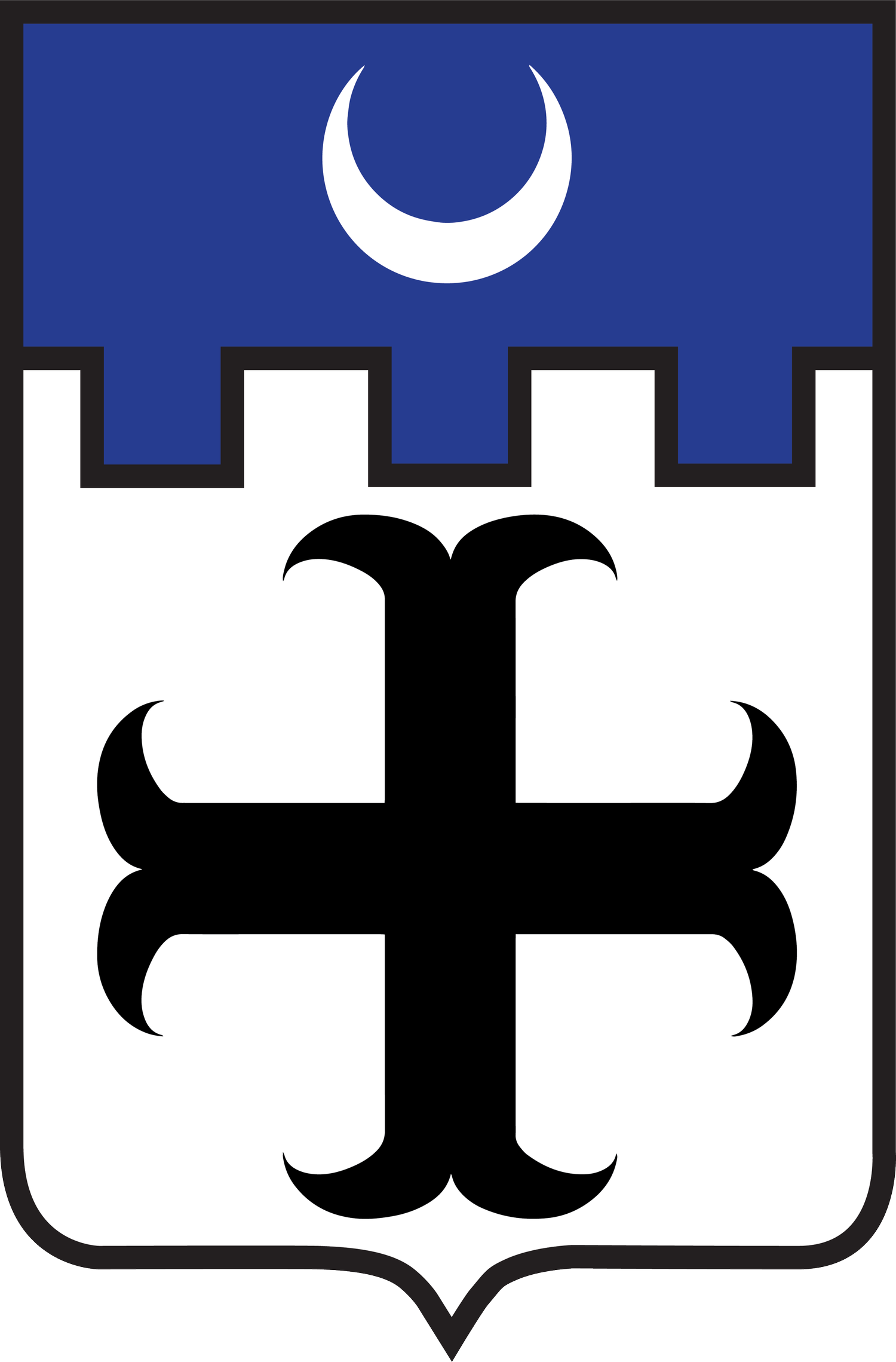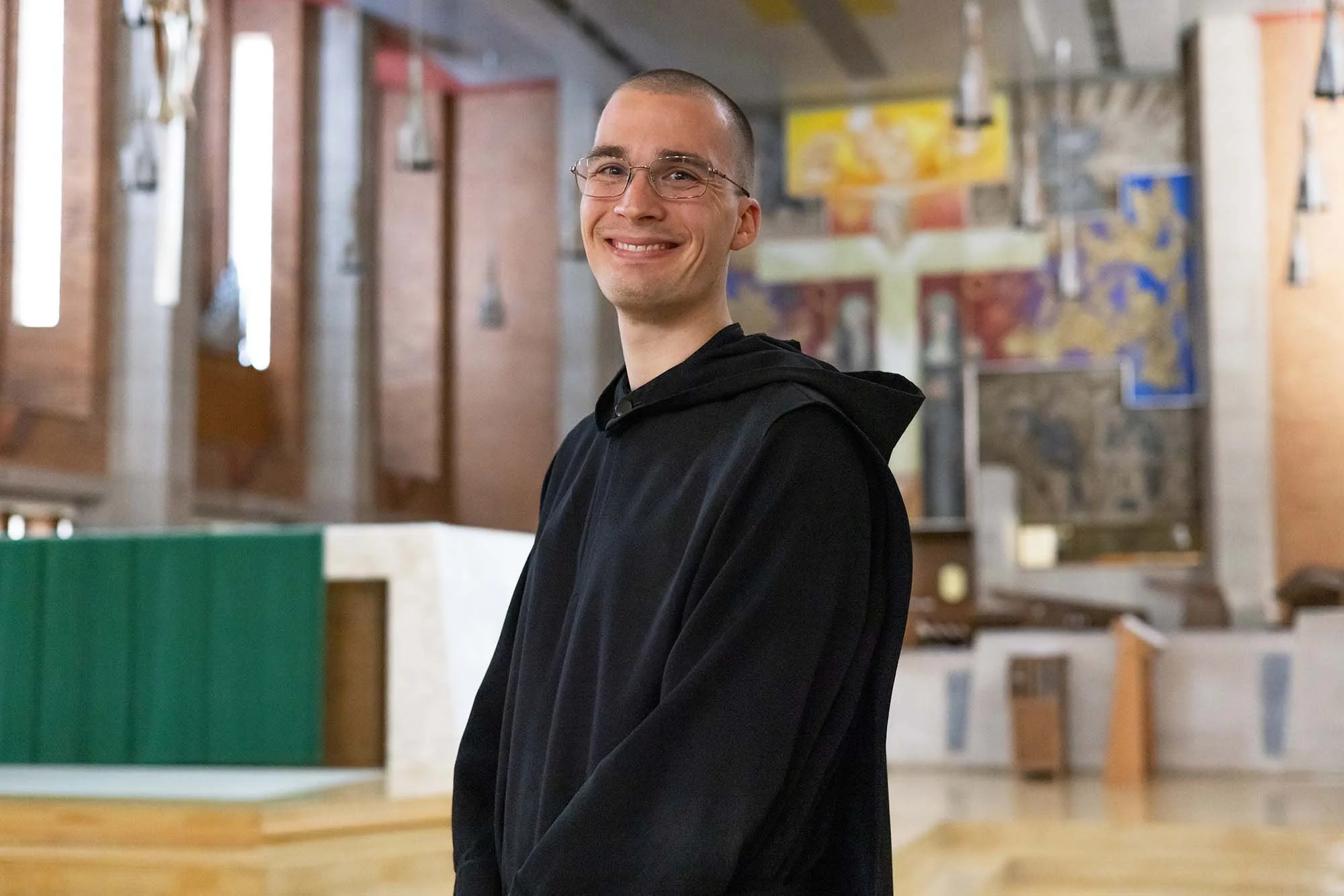Following the Rule as an Oblate
Benedict describes the Rule he wrote as "minimal, just an initial outline" (cf. 73, 8); in fact, however, he offers useful guidelines not only for monks but for all who seek guidance on their journey toward God. For its moderation, humanity and sober discernment between the essential and the secondary in spiritual life, his Rule has retained its illuminating power even to today.
Interested in Becoming an Oblate?
Br. Florian Rumpza, OSB. Director of Oblates
FAQs
What is an Oblate?
An Oblate of St Benedict is a Christian man or woman who associates with a Benedictine community in order to enrich his/her Christian life. Oblates shape their lives by living the wisdom of Christ as expressed in the Rule of Saint Benedict.
Pope Benedict XVI, Wednesday Audience, April 9, 2008. Benedict describes the Rule he wrote as "minimal, just an initial outline" (cf. 73, 8); in fact, however, he offers useful guidelines not only for monks but for all who seek guidance on their journey toward God. For its moderation, humanity and sober discernment between the essential and the secondary in spiritual life, his Rule has retained its illuminating power even to today.
Who can become an Oblate?
Any baptized man or woman who desires to follow Christ at a deeper level by following the Rule of St. Benedict.
What do oblates do?
The role of the Oblates is to live in the world, to become holy in the world, and to do what they can to bring the world to God by being witnesses of Christ. Oblates live their baptismal vows through the wisdom of St. Benedict. Oblates do not take on a new set of religious practices and are not required to say a certain number of prayers or engage in special devotions. To the best of their ability and as is fitting for their station in life, daily, they pray the Liturgy of the Hours, take time for silence, Lectio Divina (Holy Reading of Scripture), and if possible, Mass. They strive to make all of their work, and relationships grow from their seeking after God (Conversion of Heart) using the wisdom of St. Benedict. This means they will grow in humility, moderation, stability, obedience (listening to the voice of God in the Scripture and the Church, the Rule of St. Benedict, and to others) and Good works.
Rule of Saint Benedict, 73:3: What page, what passage of the inspired books of the Old and New Testaments is not the truest of guides for human life?
What is the oblate formation like?
Once a person enrolls as an Oblate Novice, there is at least a year and a day of formation. The period of formation assists the Oblate Novice to understand Benedictine Values and Spirituality, and how these can be experienced and expressed in daily living. The Rule of Saint Benedict becomes the central focus in this period of formation. Meetings are held on a regular basis (monthly) where the Novices are encouraged to share in the Eucharist, Liturgy of the Hours, and fellowship with Members of the Community and Oblates.
How are Oblates different from other church associations (tertiaries, apostolic, etc.)?
Oblates are associated with one particular community of Benedictine men or women and seek to incorporate Benedictine values into their everyday life. Oblates can be seen as extending the spirit of the monastic community into areas where the community cannot reach or be present. Oblate life is distinct from other groups within the Church, such as Marriage Encounter, Cursillo, Charismatic Renewal, etc., and is a true vocation of the Church. Tertiaries of other religious orders also may be Oblates (Canon Law 303 and 307).
Rule of Saint Benedict, Prologue: 9-10. Let us open our eyes to the light that comes from God, and our ears to the voice from heaven that every day calls out this charge: 10If you hear his voice today, do not harden your hearts (Ps 95:8).
What if I became an oblate of the Abbey years ago, or became an oblate at another monastery?
People reading this page may already be an Oblate of St. Benedict’s Abbey, or of another Benedictine Monastery. As has been mentioned, a person becomes an Oblate of a particular Abbey or Monastery. You are free to explore becoming an Oblate of St. Benedict’s Abbey in Atchison, KS, or you may already be, or want to become an Oblate of another Benedictine house.
How do I start the process?
The first step is to contact the oblate director. Fill out the form to the right with the subject “Oblates”. In the message area please let us know why you are interested in becoming an Oblate and what is the most convenient way to visit with you (telephone, internet, visit the Abbey, attend an Oblate meeting)
What if after formation, I decide it is not for me?
Any decision like this involves our freedom. Jesus freely invites us to follow Him. This way of life will not be for everyone.
Why become an Oblate?
Each Oblate practices the Rule of St. Benedict in a different way. At the heart of St. Benedict’s Rule is a path for living a deeper spiritual life in communion with the Blessed Trinity and with others on the journey. Having this friendship with God and others can be fruitful.
What if I am a college student seeking to become an oblate?
Students at Benedictine College, or other universities may want to become an Oblate. They are encouraged to contact the Oblate Director.
Who are the co-patrons of Benedictine Oblates?
St. Frances of Rome (d. 1440) Was a wealthy married woman who gathered together a group of women in a dark time of history to bring the light of Christ to Rome and the world. She brought about a new way of Benedictine life for secular people, and hence is a patron for Oblates.
The other patron of Benedictine Oblates is St. Henry the Emperor. (d 1024) Married to St. Cunigunde, Henry was Holy Roman Emperor and King of Germany and Italy. Always a devout man, he received a healing through the intercession of St. Benedict while visiting Montecassino. St. Henry is a perfect example of one whose “day job” of being King and Emperor did not interfere with a deeper calling for union with God using St. Benedict as a model.



